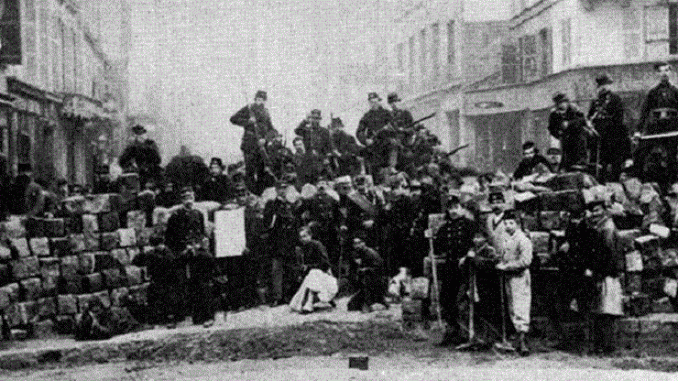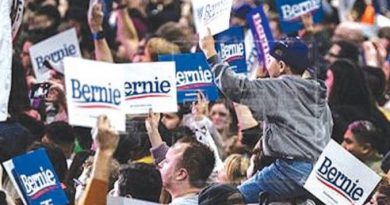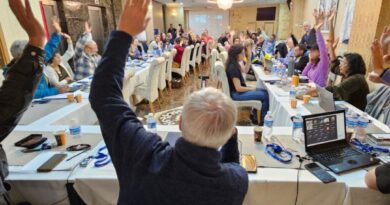The Paris Commune. 150 years of the first workers' government
ByEmilio Poly
“…I will be ruthless; atonement will be complete and justice inflexible... The ground is covered with their corpses; that horrific spectacle will serve as a lesson”. with these words, Louis Adolphe Thiers – head of the executive power of the French Third Republic – announced the defeat of the Commune. Nearly 30.000 Parisians murdered; some 45.000 arrested – many of them later executed – and thousands exiled or sentenced to forced labor. In this way, the French bourgeoisie punished the audacity of a people that showed for the first time that the working class could take power into its own hands and give birth to a new social order..
The Franco-Prussian War and the Revolution
In 1870, under the direction of Chancellor Otto Von Bismarck, Prussia was advancing towards German unification, threatening French hegemony in Europe. He 15 July the empire of Louis Bonaparte (Napoleon III) declared war on him, but the adventure did not last long. He 2 September Napoleon III is defeated and falls prisoner along with more than 100 thousand soldiers.
He 4 September massive mobilizations in Paris overthrow the empire and force the proclamation of the Republic. A National Defense government is created which actually hinders and abandons all defense of Paris. The capital is besieged by Prussian troops for four months.
The government was only looking for peace negotiations. He 28 to declare itself a provisional government and above all to prevent the advances of the protesters from the suburbs 1871 the surrender of the city is decided. Bismarck agrees to a truce so that elections can be called for a National Assembly to ratify the conditions imposed by Prussia: disarmament of the army of Paris, payment of a million-dollar compensation and the transfer to Germany of the cities of Alsace and Lorraine. In the elections the most reactionary sectors triumph and Thiers is appointed as head of the executive power of the Third French Republic. The new government was installed in the city of Versailles, a few kilometers from the capital. His main objective was to disarm the Parisian people.
the insurrection
The Parisian resistance was commanded by the National Guard, a body different from the regular army that was made up of the population in arms and whose officers were chosen by the battalions. He 16 of March Thiers He arrives in Paris with the aim of disarming the people.In the early morning of the 18th,the army tried to seize the cannons of the National Guard. The working class took to the streets with women at the head. In a few hours the workers won over many soldiers to their cause and expelled the rest. At night, the Central Committee of the National Guard, made up of delegates from the battalions, it was the only authority in Paris before the flight of the government and the bourgeoisie.
The first measure of the Central Committee was to call elections to choose representatives in all the districts of Paris. The result of these elections is the emergence of the Commune, whose members were almost all workers or representatives recognized by them. This is how the first workers' government in history was born.
The Commune in power
The Commune had legislative and executive functions.. All administrative charges, judicial and educational were elective, revocable and received the same salary as other workers.
In the two months that it lasted, despite the economic crisis on the one hand and the war against Versailles on the other, the Commune carried out measures of rupture with the bourgeois regime aimed at the realization of a new social order at the service of the working class and the oppressed sectors of the people.
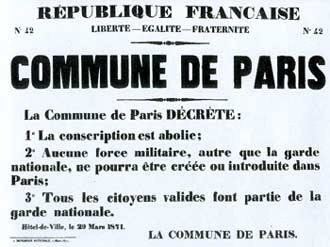
He abolished the standing army, supplanting it by the armed people., declaring the National Guard as the only armed force. He canceled the payments of the rents of the houses and the debts of merchants and artisans. Decreed the separation of the Church from the State, he abolished the salaries paid to the clergy and declared all the property of the Church national property. He declared the secularism of teaching. He abolished night work and handed over to the workers' organizations all the workshops and factories that the bosses had abandoned.. And it resolved that officials and community members could not earn more than 6000 francs: average worker wage.
Will tellMarx what“This was the first revolution in which the working class was openly recognized as the only class capable of social initiative even by the great mass of the Parisian middle class — shopkeepers, artisans, merchants –, with the single exception of the wealthy capitalists.”
The defeat
Not only the French bourgeoisie, but all of Europe was terrified by this new Democratic Workers' State demanding its liquidation. At the beginning of April the Versailles offensive begins to crush the Commune. Thiers agrees with Bismarck to dispose of 170 thousand soldiers, most prisoners released by Germany, a “unprecedented fact that in the most tremendous war of modern times the victorious army and the vanquished fraternize in the common slaughter of the proletariat (…). Class domination can no longer be disguised under the national uniform; All national governments are one against the proletariat."(Marx) He 20 May they manage to enter Paris and "the bloody week" begins. He 28 May the Commune is defeated. Mass killings and summary executions continued until mid-June..
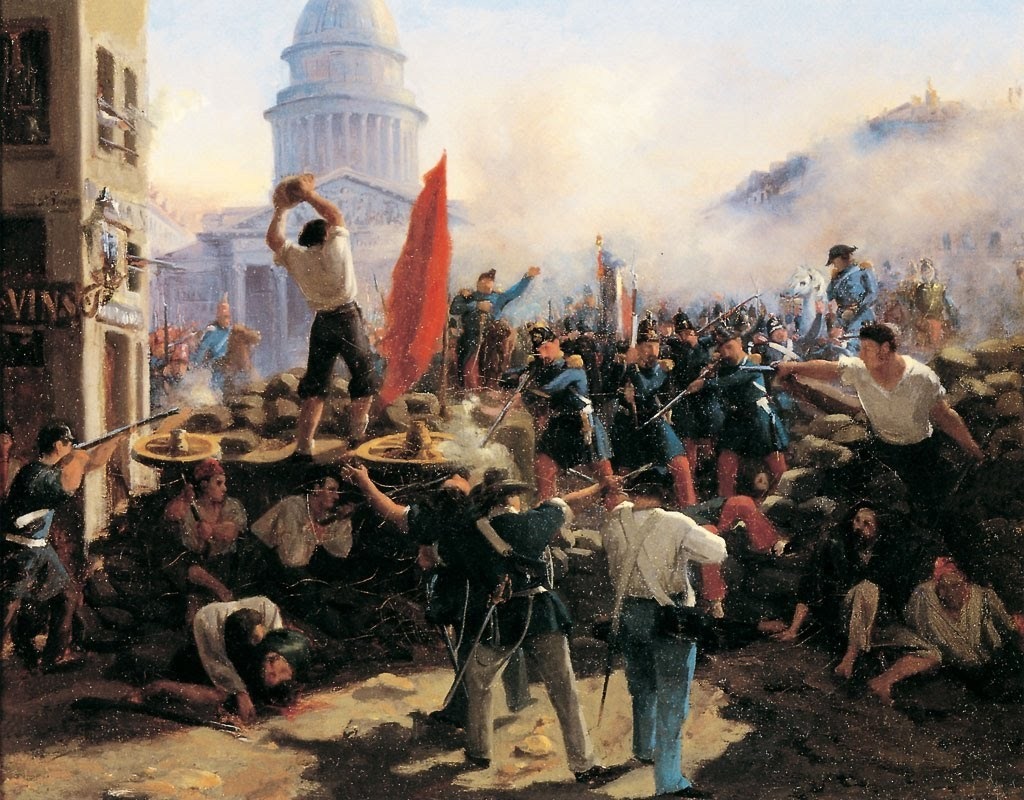
The absence of a preconceived plan, the inexperience and politics of the different ideological currents within the Commune, predominantly anarchist, These are factors that partly explain the vacillations that facilitated the victory of the reaction. Engels would point out years later that“This is how it is explained that the Commune stopped doing, in the economic field, many things that, from our current point of view, should have done. The most difficult thing to understand is undoubtedly the holy fear with which those men respectfully stopped on the threshold of the Bank of France. This was also a very serious political error. The Bank of France in the hands of the Commune would have been worth more than ten thousand hostages. It would have meant the pressure of the entire French bourgeoisie on the Versailles government to negotiate peace with the Commune.”Another weakness was not advancing on Versailles to defeat the central government at its weakest moment - at the beginning of March- before Thiers and Bismarck agreed to reinforce the army. Probably the fate of other uprisings (Lyon, Marseilles, Toulouse, etc) that followed one another would have been different and the Commune would not have been isolated.
Lessons from the first workers' government
The two months that the Commune lasted were a rich experience for the world working class.. Despite the defeat, he helped to draw important lessons, enrich the Marxist theory of the state and prepare the working class and revolutionaries for the struggles to come. Marx write as a central conclusion that “The working class cannot simply take possession of the state machine as it is., and to use it for their own ends" andclaims that the Commune“It was the finally discovered political form that allowed the economic emancipation of work to be carried out.”
This new form discovered at last consisted in the replacement of the professional army by "the people in arms".. The replacement of the institutions of bourgeois democracy by a direct democracy where all delegates are revocable, without privileges and with a salary similar to that of a worker. The generalization of the Russian soviets and their development as organizations of workers' and popular power 46 years later has its roots in the experience of the communards..
A 150 years of one of the most heroic deeds in the history of the labor movement, the words ofLenin remain in full force: “The cause of the Commune is the cause of the social revolution, is the cause of the complete political and economic emancipation of the workers, is the cause of the world proletariat. And in this sense it is immortal.”
Bibliographic sources
K. Marx: "Civil War in France", 1871
F. Engels: "Introduction toThe civil war in France”, 1891
V.I. Lenin: "In memory of the Commune", 1911
S. Balmartino: “The Commune of Paris”. InHistory of the labor movement, Latin America editor center

